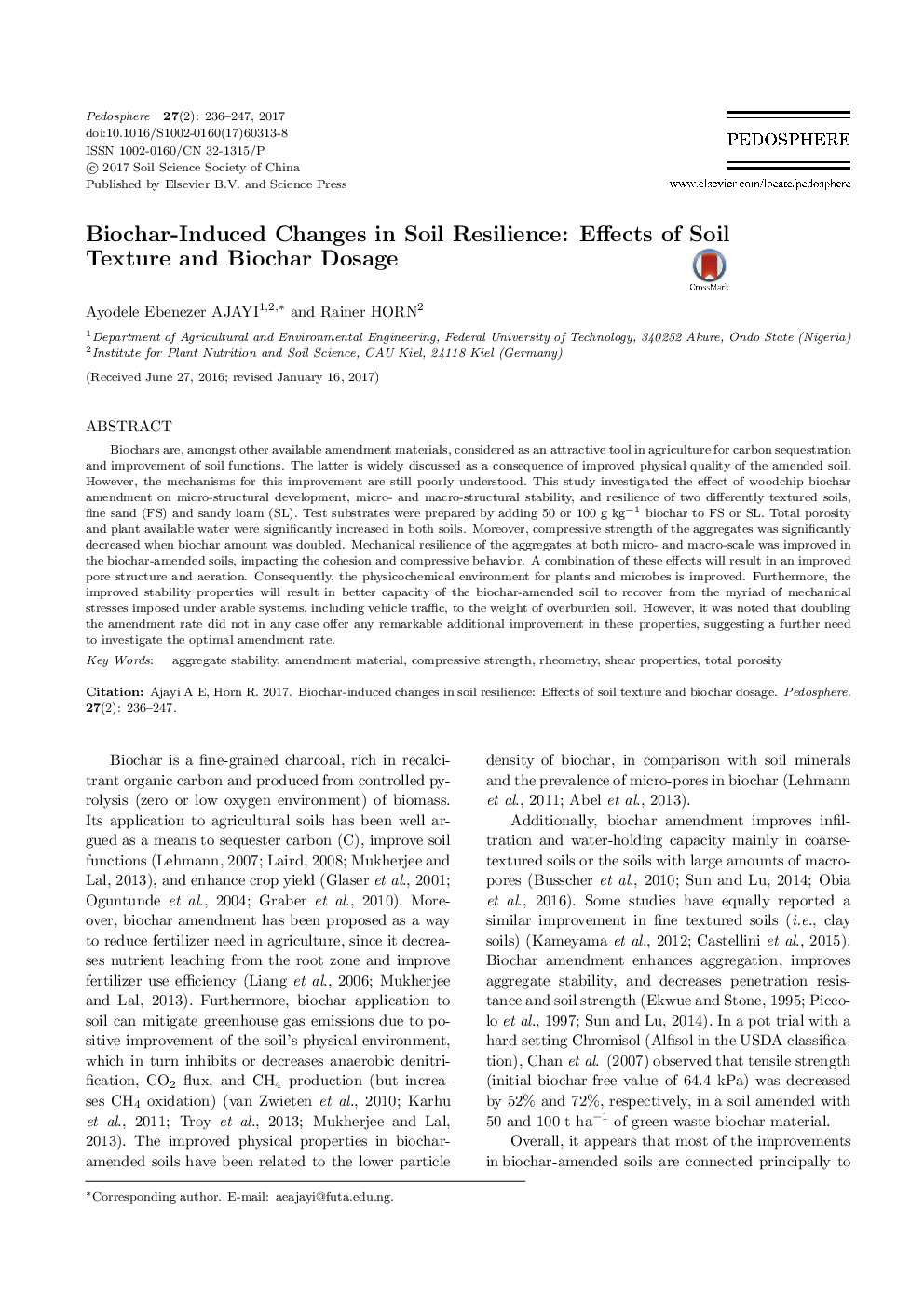| Article ID | Journal | Published Year | Pages | File Type |
|---|---|---|---|---|
| 8895508 | Pedosphere | 2017 | 12 Pages |
Abstract
Biochars are, amongst other available amendment materials, considered as an attractive tool in agriculture for carbon sequestration and improvement of soil functions. The latter is widely discussed as a consequence of improved physical quality of the amended soil. However, the mechanisms for this improvement are still poorly understood. This study investigated the effect of woodchip biochar amendment on micro-structural development, micro- and macro-structural stability, and resilience of two differently textured soils, fine sand (FS) and sandy loam (SL). Test substrates were prepared by adding 50 or 100 g kgâ1 biochar to FS or SL. Total porosity and plant available water were significantly increased in both soils. Moreover, compressive strength of the aggregates was significantly decreased when biochar amount was doubled. Mechanical resilience of the aggregates at both micro- and macro-scale was improved in the biochar-amended soils, impacting the cohesion and compressive behavior. A combination of these effects will result in an improved pore structure and aeration. Consequently, the physicochemical environment for plants and microbes is improved. Furthermore, the improved stability properties will result in better capacity of the biochar-amended soil to recover from the myriad of mechanical stresses imposed under arable systems, including vehicle traffic, to the weight of overburden soil. However, it was noted that doubling the amendment rate did not in any case offer any remarkable additional improvement in these properties, suggesting a further need to investigate the optimal amendment rate.
Related Topics
Life Sciences
Agricultural and Biological Sciences
Soil Science
Authors
Ayodele Ebenezer AJAYI, Rainer HORN,
